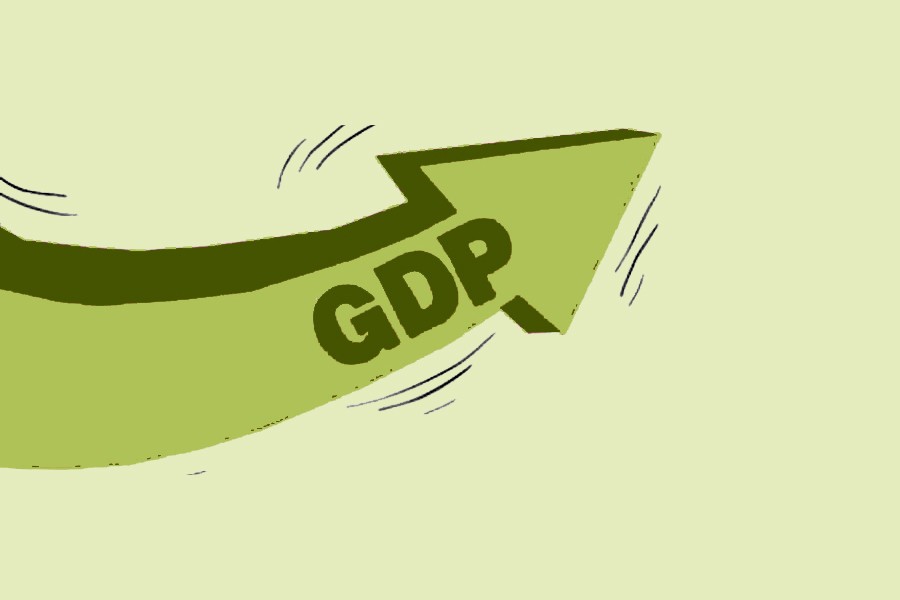
Published :
Updated :

One of the reasons why major business corporations thrive is their focus on informed strategy and forecasting. Decades ago they moved from the demand-supply equation to scanning global horizons to anticipate change and it's likely impact. Economic issues were centre stage. Geo-political developments didn't figure as strongly but they do now. Side by side there was careful consideration of the then fashionable trend of diversification, often away from core business, usually through related ones.
The trend has forked in two ways. IT businesses, telecommunications and entertainment businesses are embracing mergers, acquisition strategy and branching out into connected or related ventures. Others such has General Electric are prudently considering divesting branches that aren't core. Cost has a part to play in this. Better synergy and overall improvements in process and productivity a bigger one. Adaptability with the daily but newer influencing factors had to be achieved through manoeuvring and delicate restructuring.Hedging allowed for reasonable controls over cost of inputs, especially imported raw material thereby cushioning the spill-over impact.
There has always been an expectation that government policies would be formulated keeping in mind stability and continuity. Business strategy has to have some given certainties. Policy is foremost. In the past, two-year import and export policies were tried out. To an extent this worked. That is till government spending spiralled out of control. That was followed by the inevitable decline in implementing development spend versus unproductive expenses. Currently, at the end of each financial year projects are jettisoned on the grounds that they aren't productive. The obvious message is diverting funds to unpreventable unbridled increases in costs for bigger projects.Trumpet blowing over sustained Gross Domestic Product (GDP) and Per Capita Income increases make a lot of noise. Except both these indicators are fast becoming extinct based on the indices they depend on.
Long term plans, five-year, the delta plan and others are good initiatives to target. Where it goes pear-shaped is the lack of strategic forecasting. Record remittances are nice to haves. Depending on them without considering the global migrant Labour demand in related economies is a disaster waiting to happen.
From the last four month statistics, the malady has begun to strike with year on year remittance growth expectations falling way short. Given the relatively low value addition from exports, forex coffers are beginning to empty out alarmingly. Whereas a few months ago the central bank had to buy greenbacks from the market to prevent deflation, it is pumping the currency back to prevent stagflation.
Confounding is that in-spite of able economists both in and outside government the international commodity price movements weren't monitored closely enough. With many trade wings in embassies and the high commissions abroad, this shouldn't have been difficult. The World Food Programme (WFP) had forecast crop shortages many years ago, hinting at higher prices. The drop in fossil fuel prices, especially during the pandemic was a boon for savings. Derision over its lasting effect was misplaced. That price is now having to be paid. Money had to be and indeed, was found for stimulus and other packages during the economic depression of the pandemic. Costs in the meandering recovery period was somehow lost from view. Worse, the spin-off of inter-connected costs was not factored in.
There's much more to the sudden increase in diesel and kerosine prices than just Tk 15. Quick-rental power plants, train journeys, generators in factories will all be clamouring for upward price revisions to meet increased costs. That's after mere commuting cost and added expenses of essential products transportation. Prices of products manufactured too, will have to be considered to offset distribution cost increases. There's a further spin-off factor there, whereby distributors and retailers will demand more margins. As of yet, the railways have announced subsidies will cover them. Others beyond transport owners have not spoken out. The government is hard put at to combat fare increases beyond that acceptable. The hit to the end-consumer is massive and comes on top of an unreal, crushing impact of high prices engineered through greed of the middle-men and millers alike. Those that point at the Tk 45,000 crore 'profits' made by not reducing prices when international ones were rock-bottom must see that stimulus packages didn't emerge from thin air.
Three matters must be addressed urgently. Cracking down on over-enthusiasm for profits by transport owners and middle-men, serious introspection of how to mitigate international commodity price hikes and rejig going longer term plans keeping in mind what is or isn't agreed on post COP26. There's unmistakeable pride in graduating to a lower -- middle income country with sustained GDP growth. Stagnant complacency, however attractive must give way to harder thinking, stricter decisions and above all balancing what is lost against what is gained.
mahmudrahman@gmail.com


 For all latest news, follow The Financial Express Google News channel.
For all latest news, follow The Financial Express Google News channel.